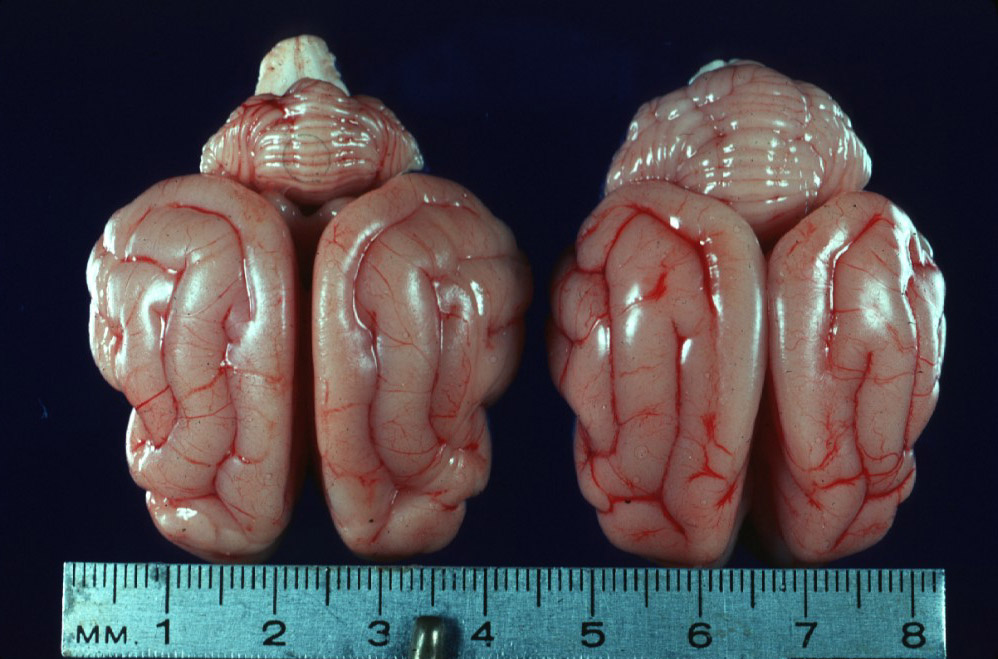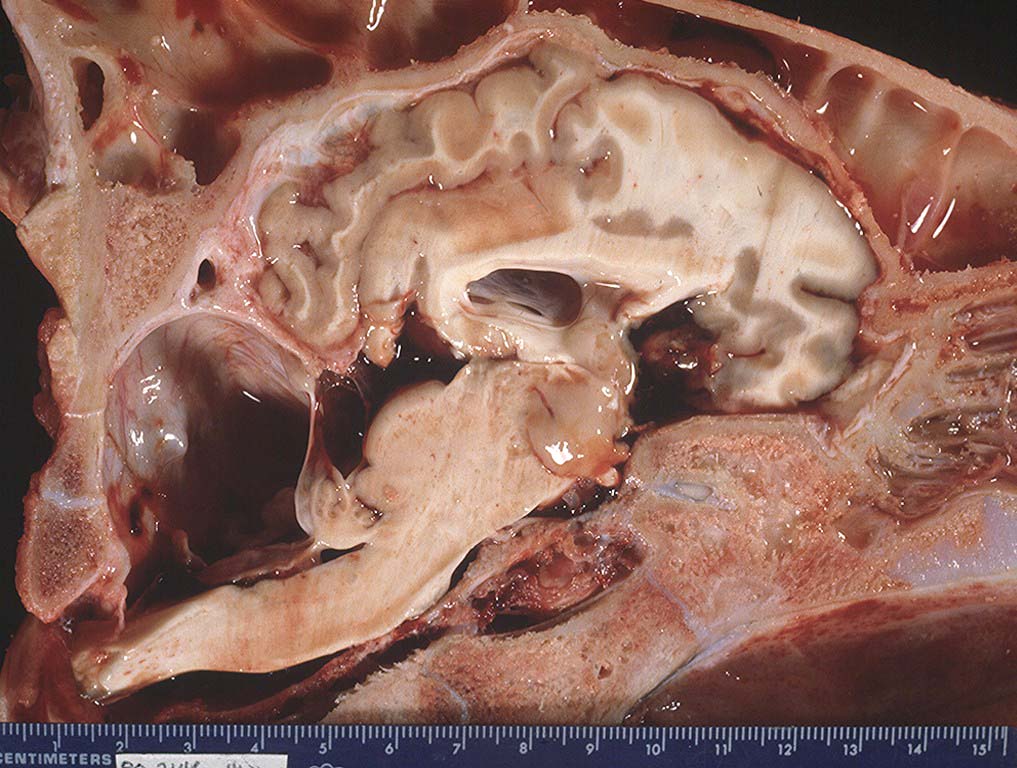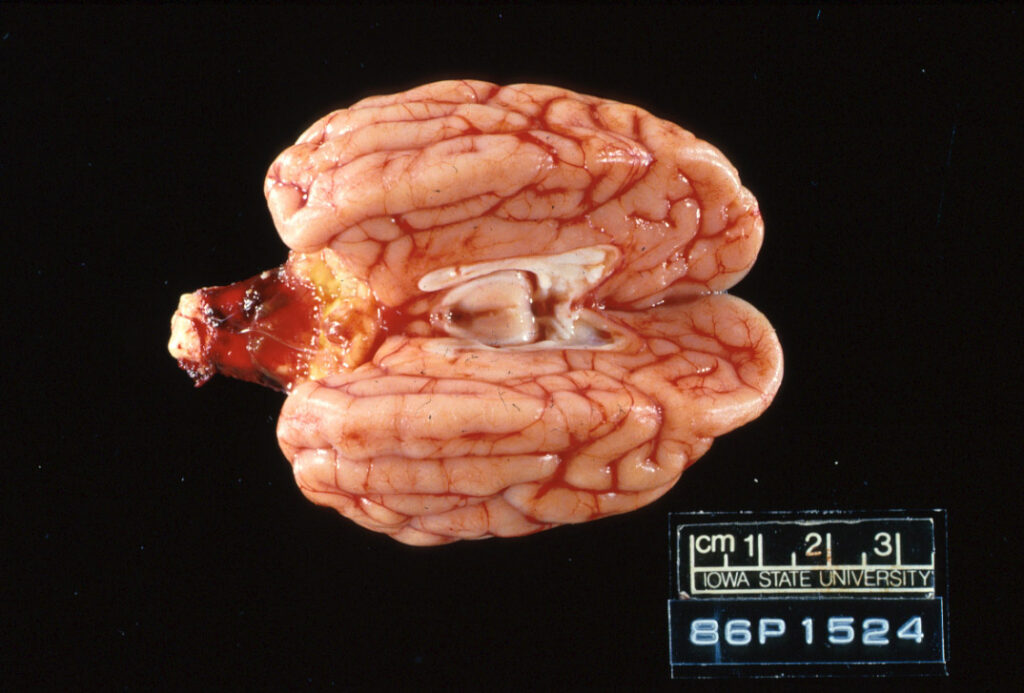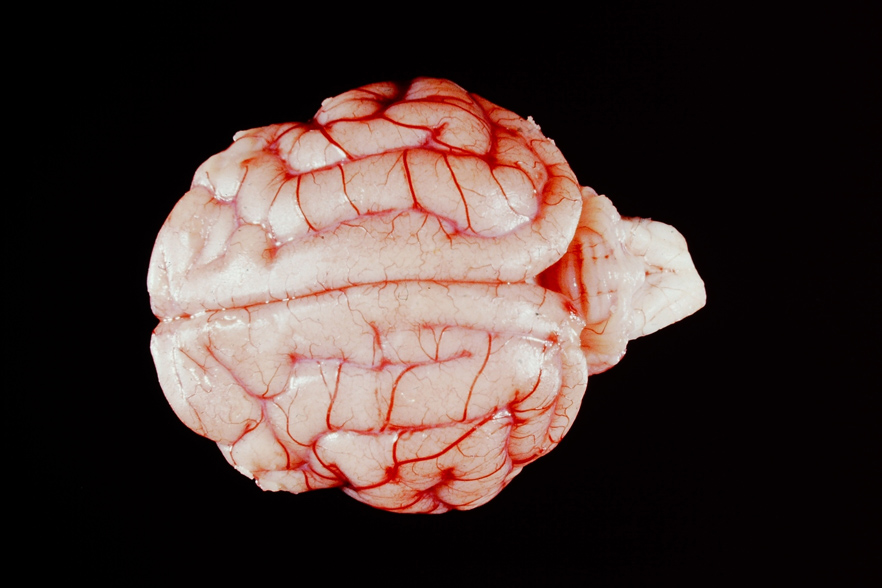Today’s path rounds are on 𝐜𝐞𝐫𝐞𝐛𝐞𝐥𝐥𝐚𝐫 𝐡𝐲𝐩𝐨𝐩𝐥𝐚𝐬𝐢𝐚!
𝐖𝐡𝐚𝐭 𝐢𝐬 𝐢𝐭?
𝐂𝐞𝐫𝐞𝐛𝐞𝐥𝐥𝐚𝐫 𝐡𝐲𝐩𝐨𝐩𝐥𝐚𝐬𝐢𝐚 is a malformation of the 𝐜𝐞𝐫𝐞𝐛𝐞𝐥𝐥𝐮𝐦, the part of the brain that controls coordination and movement. In this condition, the cerebellum is underdeveloped and smaller than it should be!
𝐖𝐡𝐨 𝐠𝐞𝐭𝐬 𝐢𝐭?
Any species can get this condition!
𝐖𝐡𝐚𝐭 𝐜𝐚𝐮𝐬𝐞𝐬 𝐢𝐭?
While there is some evidence to suggest that cerebellar hypoplasia can be genetic in some animals, we most commonly think of this condition in association with viruses. The main viruses that can cause this are 𝐟𝐞𝐥𝐢𝐧𝐞 𝐩𝐚𝐧𝐥𝐞𝐮𝐤𝐨𝐩𝐞𝐧𝐢𝐚 𝐯𝐢𝐫𝐮𝐬, 𝐛𝐨𝐯𝐢𝐧𝐞 𝐯𝐢𝐫𝐚𝐥 𝐝𝐢𝐚𝐫𝐫𝐡𝐞𝐚 𝐯𝐢𝐫𝐮𝐬, 𝐛𝐨𝐫𝐝𝐞𝐫 𝐝𝐢𝐬𝐞𝐚𝐬𝐞 𝐯𝐢𝐫𝐮𝐬, 𝐜𝐚𝐧𝐢𝐧𝐞 𝐡𝐞𝐫𝐩𝐞𝐬𝐯𝐢𝐫𝐮𝐬 and 𝐜𝐥𝐚𝐬𝐬𝐢𝐜𝐚𝐥 𝐬𝐰𝐢𝐧𝐞 𝐟𝐞𝐯𝐞𝐫 𝐯𝐢𝐫𝐮𝐬.
Typically, these viruses cause this condition by infecting the mother during the stage of development where the brain forms in the fetus. During cerebellar development, the layers of the cerebellum undergo rapid growth, which makes them a target for these viruses. By targeting these cells, the virus causes 𝐧𝐞𝐜𝐫𝐨𝐬𝐢𝐬 (cell death), leading to the cerebellum being smaller than it normally should be.
𝐖𝐡𝐲 𝐢𝐬 𝐭𝐡𝐢𝐬 𝐚 𝐩𝐫𝐨𝐛𝐥𝐞𝐦?
Because the cerebellum coordinates movement, these animals are often described as “wobbly”, since their brain simply cannot organize itself to produce finely tuned movements. These animals often have 𝐢𝐧𝐭𝐞𝐧𝐭𝐢𝐨𝐧 𝐭𝐫𝐞𝐦𝐨𝐫𝐬, where they shake when they try to make a movement that requires high levels of coordination, like picking up food or playing with toys. That said, this generally doesn’t affect the animal adversely, but they certainly look a bit silly!
𝐇𝐨𝐰 𝐢𝐬 𝐢𝐭 𝐝𝐢𝐚𝐠𝐧𝐨𝐬𝐞𝐝?
This is typically diagnosed based on the clinical signs of tremors and wobbliness in a young animal. To confirm the diagnosis, MRI or CT scans can be done, but it is uncommon to do this!
𝐇𝐨𝐰 𝐢𝐬 𝐢𝐭 𝐭𝐫𝐞𝐚𝐭𝐞𝐝? 𝐇𝐨𝐰 𝐢𝐬 𝐢𝐭 𝐩𝐫𝐞𝐯𝐞𝐧𝐭𝐞𝐝?
Unfortunately there is no treatment, but these animals can learn to compensate for their wobbly brain over time. So they can often appear more normal as they age!
For prevention, several of the viruses that can cause this condition have effective vaccines available. Ensuring that the mothers are vaccinated is the best method of prevention!
𝐏𝐡𝐨𝐭𝐨𝐬
1) A wobbly kitty with cerebellar hypoplasia! So cute ![]()
![]()
![]() This kitten Juliette is from SCAT Street Cat Rescue here in Saskatoon! She has already found a home, but if you are interested in adopting a kitten, check them out!
This kitten Juliette is from SCAT Street Cat Rescue here in Saskatoon! She has already found a home, but if you are interested in adopting a kitten, check them out!
2) An example of a hypoplastic brain (left) versus a normal brain!
3) A brain with cerebellar hypoplasia in situ. Normally the cerebellum should take up that entire empty space behind the brain.
4-7) Various brains with cerebellar hypoplasia!
𝐒𝐨𝐮𝐫𝐜𝐞𝐬
Maxie, G. Jubb, Kennedy and Palmer’s Pathology of Domestic Animals, Volume 1. Sixth Edition.
Video © Emily Holmes.
Photos 2-7 © Noah’s Arkive contributor King, Leipold, Arp, Wolfe, Niyo, Ward licensed under CC BY-SA 4.0.










